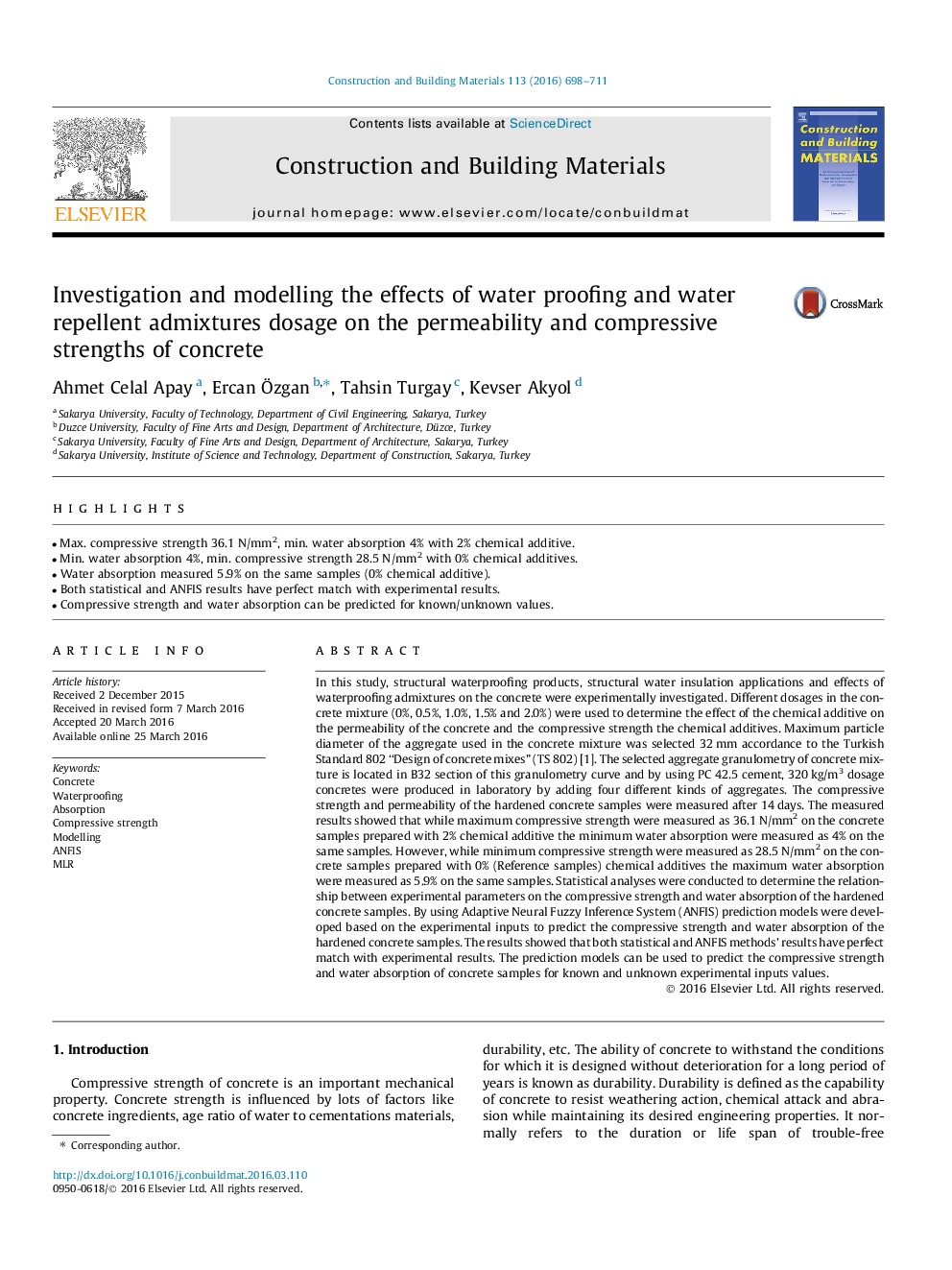| کد مقاله | کد نشریه | سال انتشار | مقاله انگلیسی | نسخه تمام متن |
|---|---|---|---|---|
| 256199 | 503543 | 2016 | 14 صفحه PDF | دانلود رایگان |
• Max. compressive strength 36.1 N/mm2, min. water absorption 4% with 2% chemical additive.
• Min. water absorption 4%, min. compressive strength 28.5 N/mm2 with 0% chemical additives.
• Water absorption measured 5.9% on the same samples (0% chemical additive).
• Both statistical and ANFIS results have perfect match with experimental results.
• Compressive strength and water absorption can be predicted for known/unknown values.
In this study, structural waterproofing products, structural water insulation applications and effects of waterproofing admixtures on the concrete were experimentally investigated. Different dosages in the concrete mixture (0%, 0.5%, 1.0%, 1.5% and 2.0%) were used to determine the effect of the chemical additive on the permeability of the concrete and the compressive strength the chemical additives. Maximum particle diameter of the aggregate used in the concrete mixture was selected 32 mm accordance to the Turkish Standard 802 “Design of concrete mixes” (TS 802) [1]. The selected aggregate granulometry of concrete mixture is located in B32 section of this granulometry curve and by using PC 42.5 cement, 320 kg/m3 dosage concretes were produced in laboratory by adding four different kinds of aggregates. The compressive strength and permeability of the hardened concrete samples were measured after 14 days. The measured results showed that while maximum compressive strength were measured as 36.1 N/mm2 on the concrete samples prepared with 2% chemical additive the minimum water absorption were measured as 4% on the same samples. However, while minimum compressive strength were measured as 28.5 N/mm2 on the concrete samples prepared with 0% (Reference samples) chemical additives the maximum water absorption were measured as 5.9% on the same samples. Statistical analyses were conducted to determine the relationship between experimental parameters on the compressive strength and water absorption of the hardened concrete samples. By using Adaptive Neural Fuzzy Inference System (ANFIS) prediction models were developed based on the experimental inputs to predict the compressive strength and water absorption of the hardened concrete samples. The results showed that both statistical and ANFIS methods’ results have perfect match with experimental results. The prediction models can be used to predict the compressive strength and water absorption of concrete samples for known and unknown experimental inputs values.
Journal: Construction and Building Materials - Volume 113, 15 June 2016, Pages 698–711
